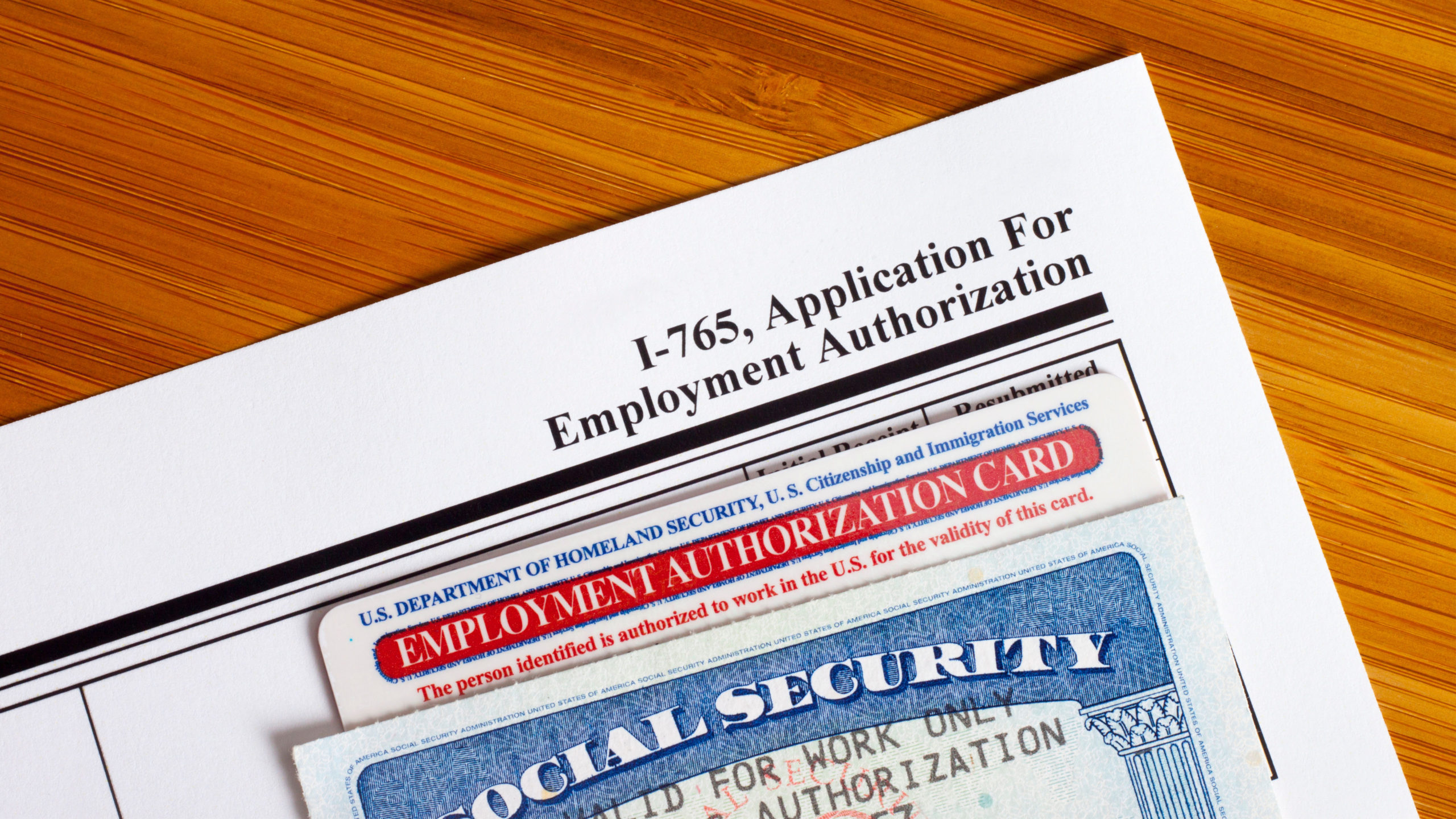IMMEDIATE ALERT: DHS Ends Automatic Extension of Employment Authorization—What This Means for You
Authored by Wendy R. Barlow, Esq.

The Department of Homeland Security (DHS) has announced a critical policy change that will have an immediate and significant impact on non-immigrant workers in the United States. Effective October 30, 2025, DHS is ending the practice of automatically extending Employment Authorization Documents (EADs) for aliens filing renewal applications in most categories.
This change is implemented through an Interim Final Rule and fundamentally alters the EAD renewal process, creating a new urgency for applicants to file their renewals well in advance of their current document’s expiration.
The Policy Change Explained
Previously, certain categories of employment authorization applicants (those filing Form I-765 seeking a renewal) were granted an automatic extension of their EAD validity for up to 540 days (or 180 days, depending on the rule in effect at the time of filing) while their renewal application was pending with U.S. Citizenship and Immigration Services (USCIS). This automatic extension allowed individuals to maintain continuous employment and income, even as USCIS dealt with processing backlogs.
The new rule eliminates this safety net.
Under the new regime, any individual who files to renew their EAD on or after October 30, 2025, will no longer receive an automatic extension of their employment authorization.
Why the Change?
According to USCIS, the primary motivation for ending the automatic extension is to prioritize robust screening and vetting of applicants. USCIS Director Joseph Edlow stated that the rule is a “commonsense measure” to ensure that appropriate background checks are completed before an alien’s employment authorization is extended, thereby enhancing public safety and national security.
Critical Impact: The Risk of a Lapse in Employment
For employees, this rule change means the timeline for EAD renewals has become far more restrictive.
If you file your EAD renewal application too close to your current EAD’s expiration date, and USCIS has not yet approved the renewal, you will experience a temporary, but immediate, lapse in work authorization.
A lapse in employment authorization is not just a personal inconvenience; it can lead to:
-
Immediate Termination: Employers are legally required to verify current and continuous work authorization. A lapsed EAD will force an employer to temporarily suspend or terminate employment.
-
Loss of Status: For certain non-immigrants, maintaining employment is a requirement of their underlying immigration status.
-
Disruption to I-9 Compliance: Employers face penalties for failing to maintain compliant I-9 records.
What You Must Do Now: Attorney Recommended Action
USCIS strongly recommends that applicants file their EAD renewal application (Form I-765) up to 180 days (six months) before their current EAD expires. Under the new rule, this timeframe is not just a recommendation—it is a necessity to avoid job loss.
1. Act Immediately if Your EAD Expires Soon
If your EAD is set to expire within the next six months, you should contact our office immediately to begin the renewal process. Waiting until the final 60-90 days dramatically increases your risk.
2. Review Your Documentation
For employers, you must be aware that, as of October 30, 2025, an expired EAD with a timely filed I-765 renewal receipt (Form I-797C) will no longer be sufficient proof of ongoing work authorization for I-9 purposes in most categories. You must update your internal compliance protocols and alert HR staff to this major change.
3. Note the Limited Exceptions
A few exceptions still exist, such as extensions provided by law or specific Federal Register notices, particularly for certain individuals with Temporary Protected Status (TPS)-related employment documentation. You must consult with an immigration attorney to determine if your category is one of the very few that may still qualify for an automatic extension.
The interim final rule does not affect EADs that were automatically extended before October 30, 2025. This change applies to all renewal applications filed on or after that date.
Cohen, Tucker + Ades is closely monitoring the implementation of this rule and is prepared to assist both individuals and employers in navigating this complex shift. Do not risk a lapse in employment authorization.
If you have questions about your EAD renewal timeline or need to ensure your company’s I-9 compliance is up-to-date, please contact us today.
📞 Contact Cohen, Tucker + Ades
Protecting your ability to live and work in the U.S.
Sources: USCIS |DHS Ends Automatic Extension of Employment Authorization
(Disclaimer: This blog post is for informational purposes only and does not constitute legal advice. Please consult with an attorney for advice regarding your individual situation.)
Not sure which option is right for you? Request a confidential consultation today.

